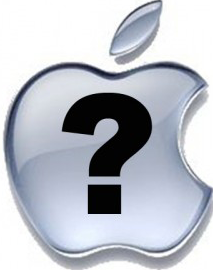- Home
- News
- Features
- Topics
- Labor
- Management
- Opinions/Blogs
- Tools & Resources
Half Million U.S. Workers Employed By Apple Job Ecosystem
Stung by reports of abusive working conditions at a Chinese subcontractor, Apple has released a report claiming the company is responsible for creating more than 500,000 jobs worldwide.

Apple, which relies on Asian contractors to make its computers, iPhones and iPads, said in a reportreleased Friday, 2 March 2012, that it has directly or indirectly created 514,000 jobs in the United States through its consumer electronics job “ecosystem.”Apple used data prepared by economists at the Analysis Group to divide its job creation count into two groups.The first group totals 304,000 jobs, including software engineers working at the company's headquarters, workers in Texas who manufacture Apple device processors, Corning’s employees in Kentucky and New York who make iPhone glass screens, and United Parcel Service and FedEx workers who ship and deliver its products.The second job category comprised 210,000 independent application (app) software developer jobs created as a result of the company's iPhone and iPad devices.Apple claims it has created more than $4 billion in business for developers who make apps for the iPhone and iPad."Throughout our history, Apple has created entirely new products -- and entirely new industries -- by focusing on innovation," the company said on its website. "As a result, we've created or supported more than 500,000 jobs for U.S. workers: from the engineer who helped invent the iPad to the delivery person who brings it to your door."The report follows criticism of working conditions for Chinese employees of Foxconn Technology Group, which assembles products for Apple and other major electronics companies, includingSource: Apple
In a January report about its suppliers in Asia, Apple said it found examples of subcontractors employing children and forcing employees to work exceedingly long hours.
Apple hired the nonprofit Fair Labor Association to perform on-the-ground inspections of Foxconn, which employs more than 1 million workers in China. Foxconn is also in the news following a number of employee suicides in 2010 and a 2011 explosion that killed four workers.
“Our commitment is simple: Every worker has the right to a fair and safe work environment, free of discrimination, where they can earn competitive wages and they can voice their concerns freely,” said Apple CEO Tim Cook, speaking at a Goldman Sachs technology conference in February. “Apple’s suppliers must live up to this to do business with Apple.”
Despite the comments by Apple’s CEO, and the effort to improve conditions at Foxconn, some observers remain critical of the company’s efforts to improve conditions for its Chinese subcontractor’s workers.
“Apple claims that it has a serious commitment to addressing labor violations. But instead of taking serious steps to address these problems, Apple has hired the Fair Labor Association, a group funded and controlled by the companies it ‘independently’ monitors,” Taren Stinebrickner-Kauffman, executive director, SumOfUs.org, said in response to a USAToday editorial. Sumofus.org has organized a campaign calling on Apple to produce an “ethical” iPhone. “Apple is not opening up to an independent auditor; it is funding a whitewashing operation.”
The very nature of consumerism and the developed world’s fascination and dependence on electronics for both business and personal lives has created a complex global ethical dilemma.
“The issue is complicated. It’s upsetting,” wrote New York Times technology blogger David Pogue. “We, the consumers, want our shiny electronics. We want them cheap, yet we want them built by well-paid, healthy workers. But apparently, we can’t have both.”
Others have doubts about Apple’s claim to being responsible for creating more than 500,000 jobs in the United States.
Greg Linden, San Jose Sate University professor and a researcher with UC Berkeley’s Haas School of Business, told the San Jose Mercury News that questioned the legitimacy of Apple taking credit for some jobs, such as UPS and FedEx employees who deliver the company’s products.
“Those jobs are questionable to the extent they’d exist whether or not Apple existed,” he told the Mercury News.
However, Linden also said that Apple could correctly claim that it has indirectly created other jobs.
“The app phenomenon is real,” he said. “Those are good, solid jobs, and they deserve all the credit for them. They jump-started the whole app ecosystem.”
According to Apple:
“With more than 550,000 apps and more than 24 billion downloads in less than four years, the App Store has created an entirely new industry: iOS app design and development. The app revolution has added more than 210,000 iOS jobs to the U.S. economy since the introduction of iPhone in 2007.
And Apple has paid more than $4 billion in royalties to developers through the App Store. We also provide app developers with the tools and distribution they need to bring their best ideas to tens of millions of iOS customers worldwide.”
Apple said the number of its U.S.-based employees has more than quadrupled during the past decade, from fewer than 10,000 in 2002 to more than 47,000 today. Apple employs about 70,000 worldwide.
A study by Linden and other researchers found that the creation, production and selling of Apple’s iPod in 2006 created 41,000 jobs worldwide and an estimated $1 billion-plus in wages.
Though only 14,000 of those jobs were in the United States, American workers garnered a total $750 million in wages, more than double what overseas workers collectively earned.
Apple may also be looking to shift some of its outsourcing work to India, according to recent reports.
List your business in the premium web directory for free This website is listed under Human Resources Directory




